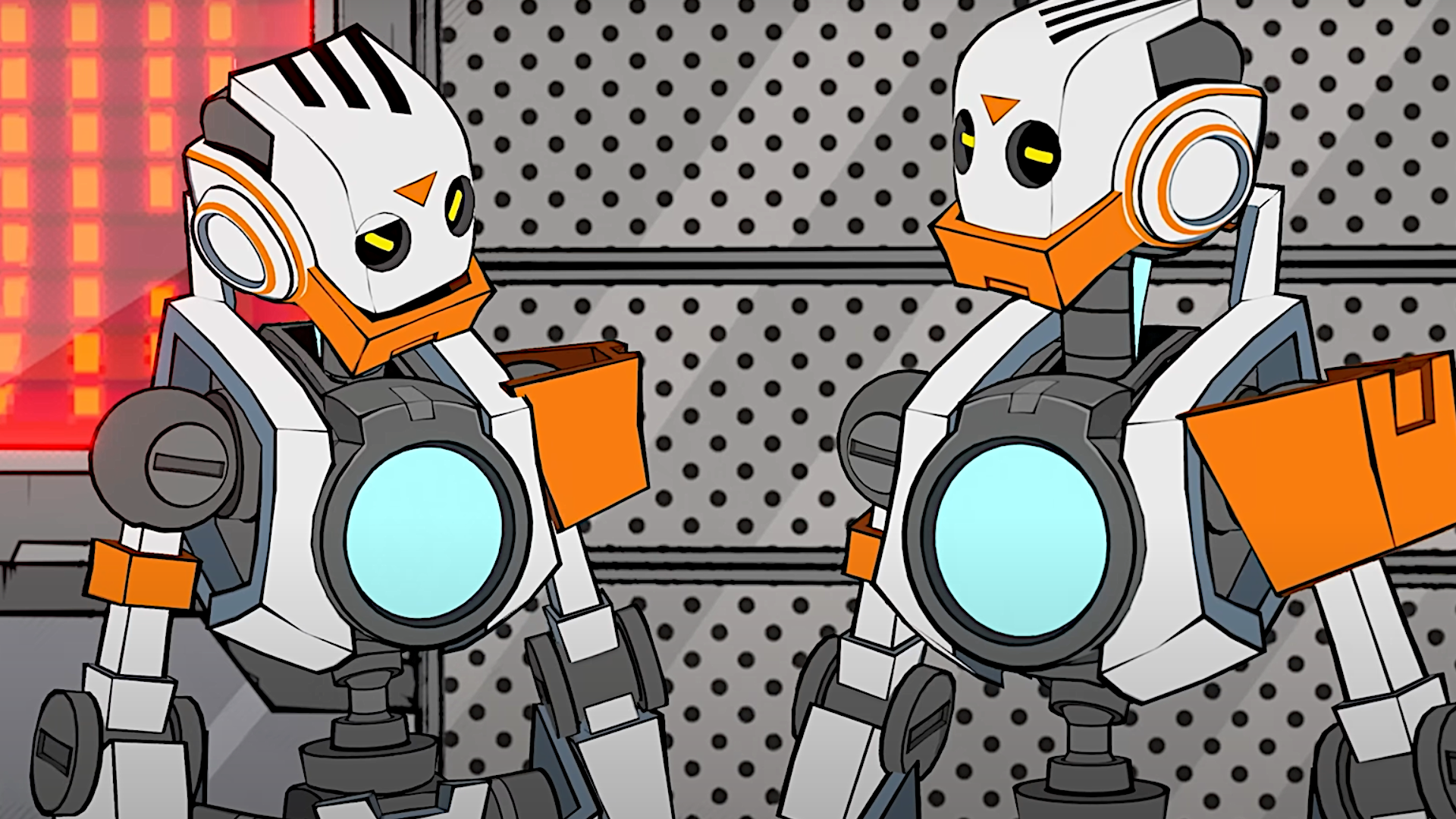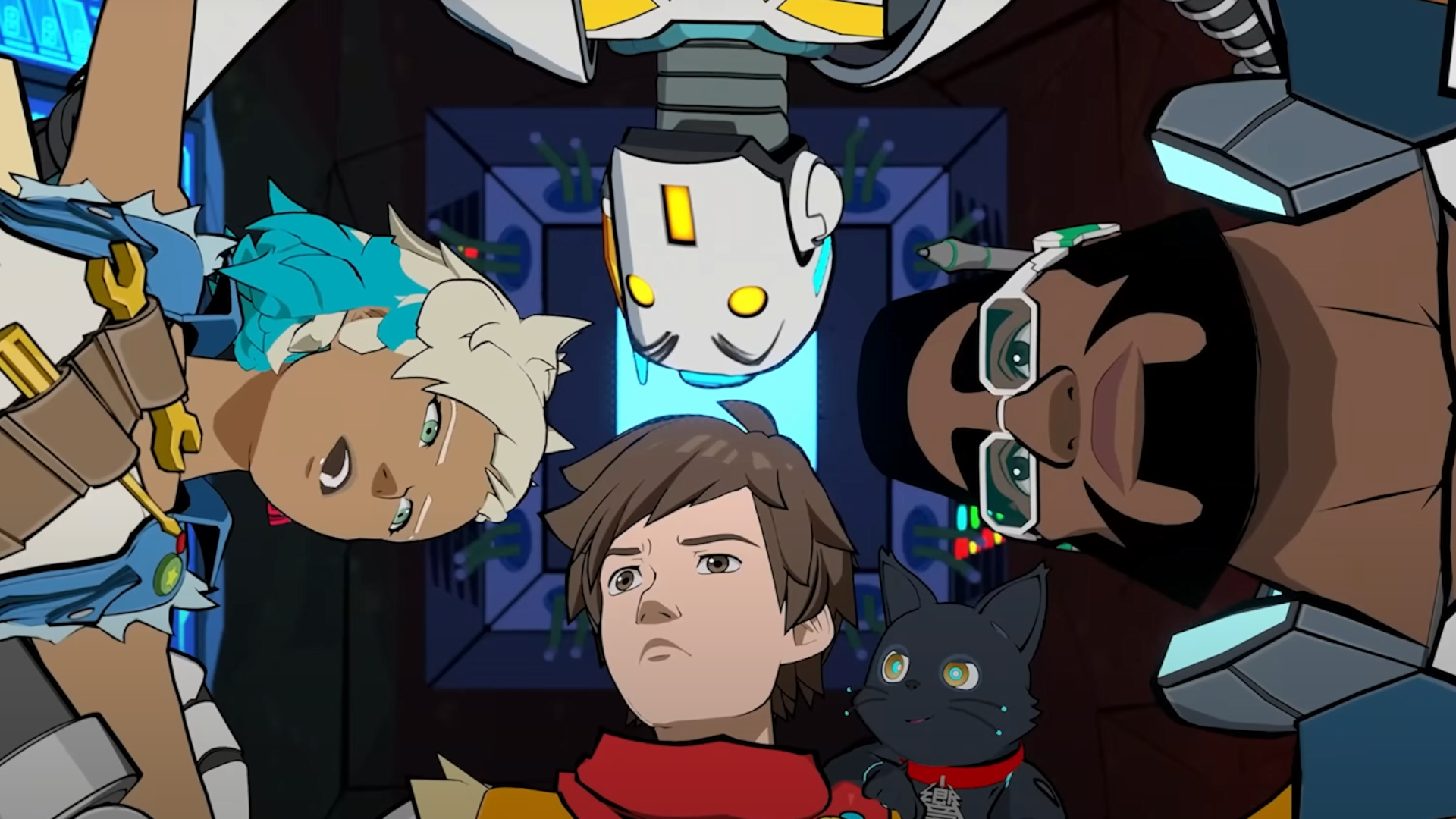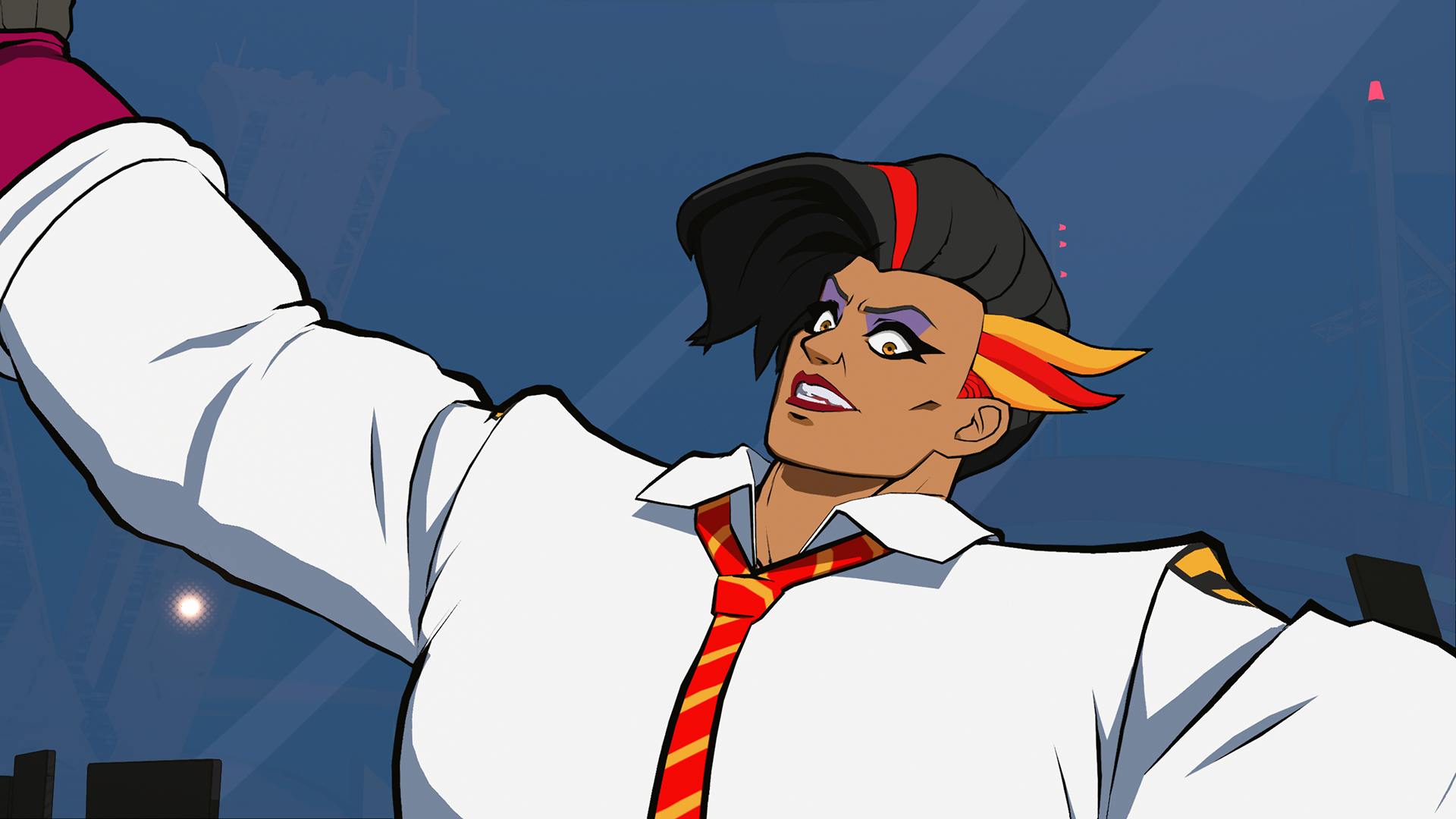'We need smaller games,' says Xbox's Matt Booty, right after Microsoft shut down the studio that made Hi-Fi Rush—and was reportedly about to pitch a sequel
The mixed messages go up to 11.

This one's a head-scratcher. Less than a day after shutting down both Arkane Austin and Tango Gameworks—the latter of which created Hi-Fi Rush—Microsoft's Matt Booty held a town hall wherein he proclaimed: "We need smaller games that give us prestige and awards."
That's as per a report shared by The Verge. I won't start rapid-firing quote tweets here because there are so damn many, but dipping into Twitter, you'll see widespread bafflement to the tune of 'wait, didn't you just kill the studio that did that for you?'
More baffling still is (as per an internal email from the man himself at the time of said closures) these decisions were, quote: "Grounded in prioritising high-impact titles and further investing in Bethesda's portfolio of blockbuster games." The messages are mixed, but blending together like oil and water.
Hi-Fi Rush released to wide acclaim, but it carried with it the vibe of a small-scale title. A story that didn't overstay its welcome, a unique concept executed flawlessly, and a shadow-drop onto Game Pass praised as a "break out hit for us and our players in all key measurements and expectations" from Microsoft itself.
In terms of awards, Hi-Fi Rush did well, claiming Best Animation from BAFTA, Best Audio Design from The Game Awards, and a sterling track record of nominations to boot. Especially in a year where Baldur's Gate 3 swept basically every major ceremony. What's more, according to a Bloomberg report, Xbox called curtains on Tango Gameworks right before the studio was slated to pitch the game's sequel—as per anonymous comments supplied to Jason Schreier.
Let's get this all out on the corkboard, then:
- A small-looking, shadow-dropped game does great in "all key measurements and expectations."
- Its developer has plans to pitch a sequel.
- Microsoft shuts down the studio suddenly, because it wants to focus on "high-impact titles and invest in Bethesda's portfolio of blockbuster games."
- In less than a day, the very same person who penned that email turns around and says it needs more games that sound a lot like what Hi-Fi Rush was.
But hey, in the interest of fairness, we should at least interrogate the statement itself.
Keep up to date with the most important stories and the best deals, as picked by the PC Gamer team.
As someone who made this thing my personal pick for 2023 (full disclosure, PC Gamer's Tyler Colp gave it a score of 69—plenty of salient points as to why, even if I would've ranked it higher) the idea of a dead-in-the-water Hi-Fi Rush sequel fills me with deep sorrow.
But I think it's important to recognise that Booty's comment here, while completely failing to read the room, baffling on the face of it, and running pretty contrary to his stated justifications for shutting Tango Gameworks down—isn't necessarily false. That's not my speculation, that's directly from the studio.
It takes a little more than two to Tango

Back in October 2023, Xbox Wire spoke with several members of Tango about the game, and its development team was pretty insistent that the thing wasn't created on a shoestring budget. While Game Director John Johanas does say that the game started with "the smallest thing possible", this was in its prototype stages, with "just myself and a programmer (Yuji Nakamura)" working on it for a year.
From there, however, the project gained enough traction and excitement within the studio to expand into its own thing—in terms of the game's budget, Johanas remarks: "people probably see it as this weird, sort-of AA title. Or people are like, 'Oh, they made a nice indie game.' This ain't no indie game. Obviously, I can't say how much it cost, but it was not a cheap game to make."
Meanwhile, the game's lead programmer Yuji Nakamura comments: "For the first two years I would say it was a small project. But what John wanted to make was not a very small thing to do. We needed to get more and more people to help. In my mind, small projects would be maybe 20 to 30 people for two years. We ended up developing for about five; I wouldn’t call it a small project at all."
Again, I don't think it's entirely inaccurate to call Hi-Fi Rush a smaller game by AAA industry standards. This was not a thing that had over a hundred people working on it for years—it started off small, had a relatively bite-sized group, then had a lot of manpower and money poured into it to get it over the finish line. Johanas recalls the studio having to drag in outside support for a "final sprint", adding that he "think[s] it’s a smart way to make something that doesn’t require like 1,000 people to make a game."

This by no means clears Microsoft's Xbox division or Bethesda from scrutiny. At best, it exchanges one 'wait, what the hell?' for another.
Either Hi-Fi Rush is what Booty considers a "smaller" game, in which case it's bizarre that Tango Gameworks was shut down—or it doesn't, which dredges up a whole lot of other questions. Because if Hi-Fi Rush wasn't a small-budget, experimental thing cooked up by a smaller team—then why risk everything on a shadow drop? Why refuse to advertise it at all until the very moment it's out on Game Pass, day one?
Either way, what's been said by the disheartened dev community appears to be holding true: Making a game that most people liked just isn't enough anymore. Hi-Fi Rush has all the makings of a success story, but it somehow led to the studio's closure. Maybe there was trouble in paradise, seeing as the studio's founder left shortly after the game released, but man. I really wanted to rock out with Chai again.

Harvey's history with games started when he first begged his parents for a World of Warcraft subscription aged 12, though he's since been cursed with Final Fantasy 14-brain and a huge crush on G'raha Tia. He made his start as a freelancer, writing for websites like Techradar, The Escapist, Dicebreaker, The Gamer, Into the Spine—and of course, PC Gamer. He'll sink his teeth into anything that looks interesting, though he has a soft spot for RPGs, soulslikes, roguelikes, deckbuilders, MMOs, and weird indie titles. He also plays a shelf load of TTRPGs in his offline time. Don't ask him what his favourite system is, he has too many.

